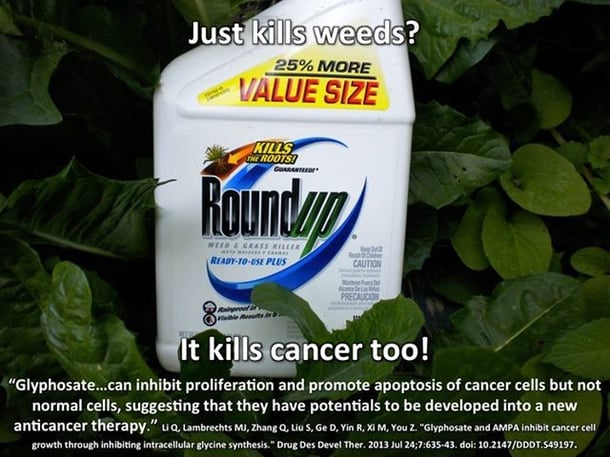Genetically Modified Organisms (GMO's)
Most consumers are unaware of Gentically Modified Organisms (GMO's), their possible health effects, their lack of long-term testing, and such.
Increasingly scientists are linking GMO foods with cancer, auto-immune diseases, allergies, diabetes, weight problems, digestive disorders, increased risk of infections, increased antibiotic resistance and more. A 2011 French study reveals the dangers of GMO corn (which is found in many of our foods, especially as a sweetner). Health Canada began investigating GMO corn in 2012. Now GMO corn has been tested positive for dangerously high levels of toxins: chlorides, formaldehyde and glyphosate. (See more about glyphosate below!) You should avoid eating any corn, corn syrup or other corn products (found in a lot of products!). See more about this report here.
Claims being made by GMO companies that their foods are scientifically considered to be safe have been countered by prominent scientists in Europe and beyond. Read their statement here.
Because of the way GMO's are constructed (unnaturally) they are inherently unstable, resulting in their ability to genetically modify other plants and human cells. While the following article by a geneticist is very technical the conclusions are alarming: Why GMO's can never be safe.
A former proponent of GMO's is now warning about the dangers of them. Read the report here.
To see an on-line documentary about the dangers of GMO foods and how they are reportedly linked to ill health in people and animals, view the "Genetic Roulette" (external link to the Real Food Channel). We also have copies of this DVD available for viewing. Also see the brief blog on this subject.
For a critical expose on Monasato, the largest GMO seed company in the world, a full version of this 2008 documentary can be seen on this YouTube link. Evidently Kaiser Permanente, the largest managed healthcare organization in the United States, has advised its members against consuming foods containing GMOs (genetically modified organisms). Kaiser, of course, stands to lose a lot of money if GMO's make people ill. We would do well to pay attention to their warning.
This article will help you know how to avoid GMO foods.
For a comprehensive list of GMO foods, to go this link.
For a list of food companies that are GMO-free go to this link.
A balanced view on the research of GMO's can be read here.
Increasingly other countries are banning these foods, especially GMO corn. To be cautious, many believe we should especially avoid corn and corn products unless they are organically grown, especially when trying to avoid numerous pesticide resudes (see below).
Until food labelling includes whether any ingredient has GMO content it is likely wise to buy organic, and/or check the list of GMO foods above. Your health may very well depend on it!
Residue of popular herbicide likely encourages illness
Glysophate is found in most processed foods, corn, soy, wheat, sugar
A chemical and food company wants us to believe that glysophate, a widely-used herbicide, is not only safe -it might be used to treat cancer!
How profitable, as it may also increase your risk for cancer.
Glysophate is considered to be toxic to animals, including humans. Its residue, found in popular foods, may also be so. A study by two independent scientists, published in Entropy April 2013, connects the increasingly widespread use of glyphosate with modern diseases because of its "inhibition of cytochrome P450 (CYP) enzymes, an overlooked component of its toxicity to mammals. CYP enzymes play crucial roles in biology, one of which is to detoxify xenobiotics. Thus, glyphosate enhances the damaging effects of other food borne chemical residues and environmental toxins."
In other words, it slowly induces disease.
"Consequences are most of the diseases and conditions associated with a Western diet, which include gastrointestinal disorders, obesity, diabetes, heart disease, depression, autism, infertility, cancer and Alzheimer’s disease."
A copy of the whole report can be found below.
Conclusion: only eat organically grown food or foods known not to have been sprayed with Round-up Ready herbicide.
Consider also helping your cells to repair from this damage by using Asea.

 Shore Wellness Solutions Nanaimo BC
Shore Wellness Solutions Nanaimo BC


